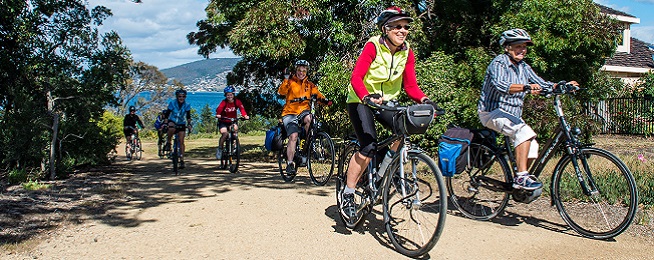Scientists are homing in on why people who regularly exercise have good memory, even into later life: it's all about the blood flow in the brain.
Evidence has been accumulating in recent years that fitness benefits the brain, including better memory.
But just how changes in the brain during and after exercise could boost memory has been a puzzle.
Now researchers at the University of Texas Southwestern believe they have gained a critical insight into the process, and are even speculating that their findings may soon point the way to strategies that could help prevent or delay symptoms of Alzheimer's disease.
The study, published in the Journal of Alzheimer's Disease, documented changes in long-term memory and cerebral blood flow in 30 participants, each of them 60 or older with memory problems.
Half of them underwent 12 months of aerobic exercise training; the rest did only stretching.
The exercise group showed 47 percent improvement in memory scores after one year compared with minimal change in the stretch participants.
Brain imaging of the exercise group, taken while they were at rest at the beginning and end of the study, showed increased blood flow into the anterior cingulate cortex and the hippocampus — neural regions that play important roles in memory function.
The new research is significant because it plots improvement over a longer period in adults at high risk to develop Alzheimer's disease.
"We've shown that even when your memory starts to fade, you can still do something about it by adding aerobic exercise to your lifestyle," says Binu Thomas, Ph.D., a UT Southwestern senior research scientist in neuroimaging.
Around 50 million people worldwide have dementia and every year, there are nearly 10 million new cases, with the total to reach 82 million in 10 years.
Billions of dollars spent on researching how to prevent or slow dementia so far have yielded no proven treatments that would make an early diagnosis actionable for patients.
Regarding the importance of blood flow, Thomas says it may someday be used in combination with other strategies to preserve brain function in people with mild cognitive impairment.
"Cerebral blood flow is a part of the puzzle, and we need to continue piecing it together," Thomas says. "But we've seen enough data to know that starting a fitness program can have lifelong benefits for our brains as well as our hearts."
In another study researchers at McMaster University have found that high-intensity workouts improve memory in older adults, finding that intensity is critical.
Seniors who exercised using short, bursts of activity saw an improvement of up to 30% in memory performance while participants who worked out moderately saw no improvement, on average.
"There is urgent need for interventions that reduce dementia risk in healthy older adults. Only recently have we begun to appreciate the role that lifestyle plays, and the greatest modifying risk factor of all is physical activity," says Jennifer Heisz, an associate professor in the Department of Kinesiology at McMaster University and lead author of the study.
"This work will help to inform the public on exercise prescriptions for brain health so they know exactly what types of exercises boost memory and keep dementia at bay," she says.
"It's never too late to get the brain health benefits of being physically active, but if you are starting late and want to see results fast, our research suggests you may need to increase the intensity of your exercise," says Heisz.
The study was published in the journal Applied Physiology, Nutrition and Metabolism.
Become our friend
Find out more about Bicycle Network and support us in making it easier for people to ride bikes.


